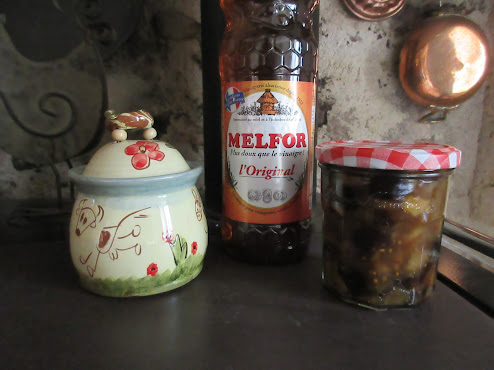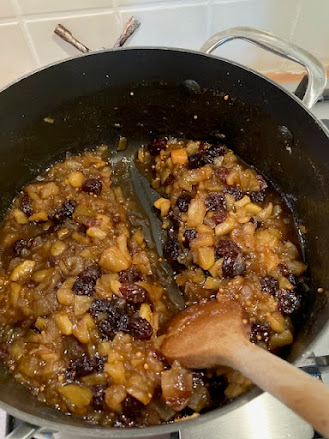My birthday is in December and the weather is usually grim. This is in sharp contrast to my OH's birthday which is in November when the weather is nearly always much nicer. Usually good enough to enjoy a walk in the countryside or, like this year, a barbecue in the sunshine. On his birthday we barbecued salmon fillets and veg skewers for a late lunch and sat outside in the evening to enjoy a glass of fizz until the sun went down. Just four weeks and two days later, on my birthday, it was grey, misty and miserable outside and definitely not sitting out weather.
In the year of my 70th birthday we had a 69¾ garden party three months early, in September, when it was still warm and sunny. I'm thinking of permanently adopting an official birthday in September every year from now on!
So, what do you do when it's a grim and miserable day outside but you want to do SOMETHING nice to celebrate? (Other than join the crowds and mayhem and go shopping.) You bake a birthday cake!
I've owned this Nordic Ware tin for a few years but so far shied away from actually using it, thinking that the cake would be bound to stick with all those tiny little nooks and crannies. It took as long to brush it with cake release paste as it did to make the cake mixture but when the cake plopped out of the tin as clean as a whistle it was definitely worth the effort! The design of the tin would make a good alternative Christmas cake. Nordic Ware now make something similar in a loaf shape as well as the traditional ring.
I adapted a recipe I have used many times before, one that always turns out well. I used my last tin of pumpkin purée from the larder and the two spoonfuls of the home made mincemeat left over from making mince pies. It’s a while since I baked a Bundt cake and I forgot the golden rule of only filling the tin to about three quarters full. I merrily spooned in all the mixture and it volcanoed up almost over the top. This can make it harder to turn out but on this occasion I got away with it! It’s better to under fill the tin and use the excess mixture for a few muffins or fairy cakes.
Did you know that the term "Bundt" comes from the German word for a gathering of people, a bund? The hole in the middle of the tin allows for even baking of a large cake to serve a lot of people at a gathering or party. Nordic Ware and other manufacturers produce dozens of different designs of Bundt tin to suit every occasion and, although they are not cheap, they are very strong and high quality. I'm lucky enough to have a small collection of them acquired over many years.
Another cake made for a New Year party.
Ingredients
200g plain flour
4 tsp baking powder
1 tsp bicarbonate of soda
½ tsp salt
2 tsp cinnamon
250g soft dark brown sugar
3 eggs, lightly beaten
190ml sunflower oil
1 tsp vanilla extract
1 400g tin pumpkin purée
2 tblsp mincemeat
Method
Carefully brush cake release paste into all the crevices of a Bundt tin*. (See recipe here.) Preheat the oven to 175°C / 155° fan.
Sift the flour into a bowl, add the baking powder, bicarb, salt and cinnamon and mix well.
In a large bowl, beat together the sugar, eggs, oil, vanilla and pumpkin until well mixed. Stir in the mincemeat.
Tip the dry ingredients into the bowl of wet ingredients and mix well, making sure everything is well incorporated.
Spoon the mixture into the Bundt tin, level the top and tap on the worktop a few times to dispel any air bubbles.
Bake for 40-45 minutes until done.
Cool in the tin for 10 minutes then turn out onto a wire rack to finish cooling.
Transfer to a cake plate or stand and dust lightly with icing sugar.
Cuts into 12-16 slices.
*If you prefer, use a 25cm round springform tin, greased and base lined with baking paper.



















































